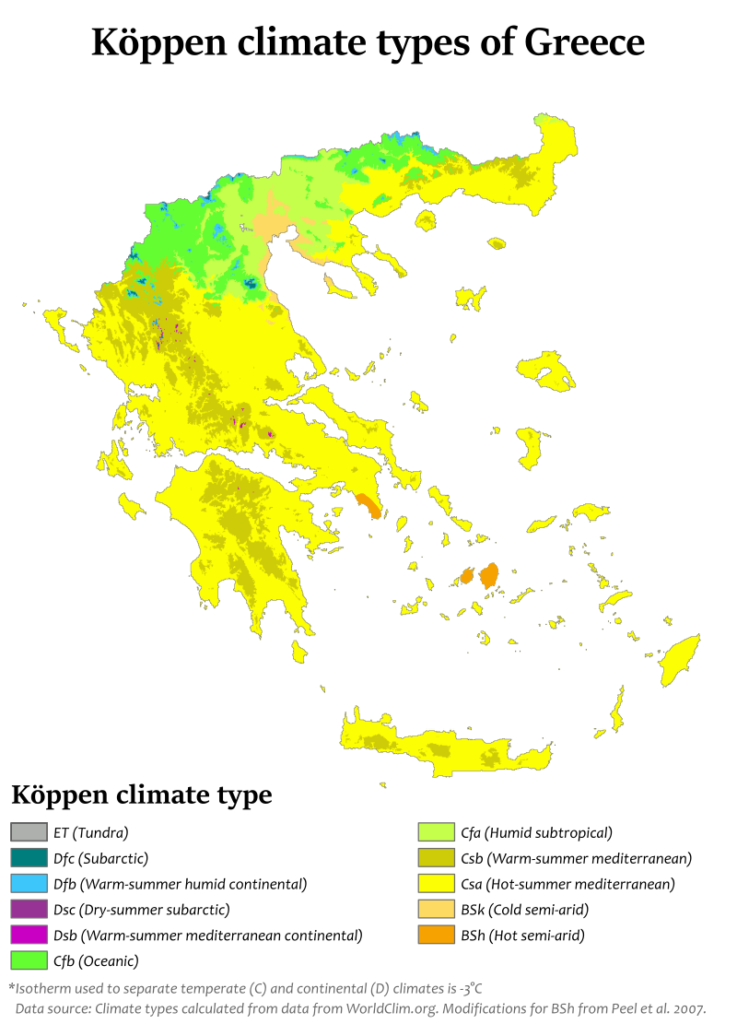Greece is a part of the Mediterranean along with other countries surrounding them. The Mediterranean region consists of Spain, Italy, and Turkey (Taylor, 2022). Mediterranean climate-type regions are temperate, wet winters and warm to hot, dry summers (Urdiales-Flores et al., 2023). In the Mediterranean, climate changes from warm to hot, to moderate rainy winters. The Mediterranean dry summer climate consists of temperatures varying from 64° Fahrenheit in their coolest months and 80-89° Fahrenheit during their hottest months. With Winters ranging from 30-65° Fahrenheit (Mediterranean, 2022). The temperature changes depending on which season and country it is in the Mediterranean.
Greece changes temperature depending on the season which impacts the weather conditions. In January-March, 55-60° Fahrenheit, April-June, 68-86° Fahrenheit, July-September, 91-83° Fahrenheit, October-December, 73-55° Fahrenheit (Regula, 2022). Greece has moderate to hot temperatures due to being part of the Mediterranean. During the winter it is mild and rainy, with cold air masses from northern Europe, or when the temperature drops in mild areas which can lead to snow in northern plains (Greece,2022). Summer in Greece is hot and during the dry season, there is minimal rain (Baker, 2023). Greece’s temperature is mainly hot with other weather conditions such as wet or dry weather.

Figure 4: Climate of Greece



Leave a Reply